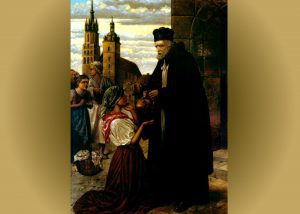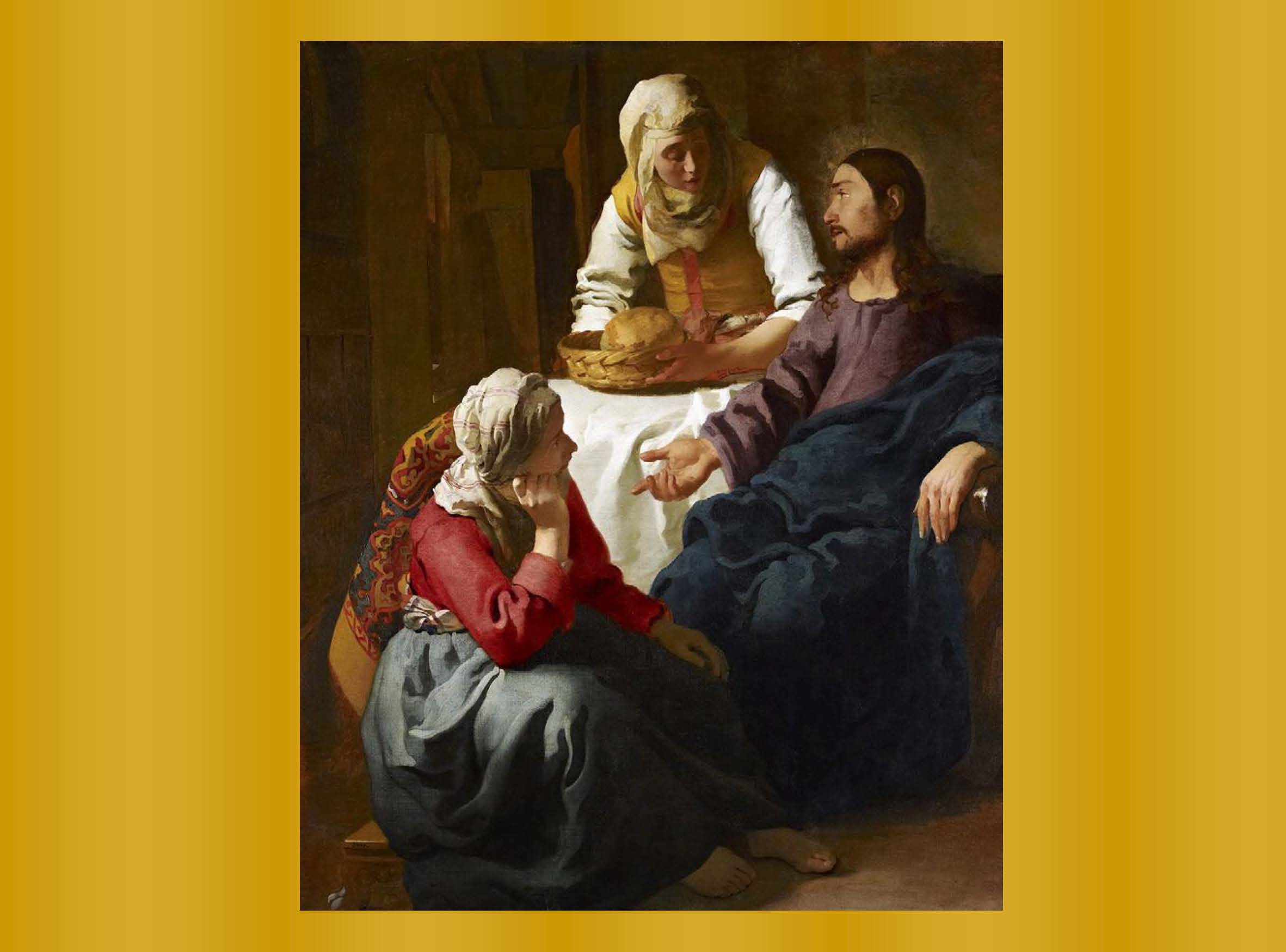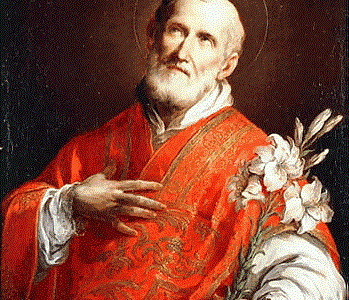
John of Kanty, also known as John Cantius, was born to a wealthy family in Kanti, near Auschwitz, Poland, in 1390. He was educated at the University of Krakow and was ordained a priest soon after completing his studies.
John was appointed a lecturer at the university and was known to be an effective teacher and preacher. He was assigned to a parish for a time, but after a few years was recalled to university life to hold a chair in theology.
John was held in such high esteem that his academic gown was used to invest each new candidate at the conferring of doctoral degrees. He was known to be a good steward of the students entrusted to him and saw to their religious instruction. He taught them to oppose false statements and opinions with courtesy and persuasiveness.
He was renowned not only for his teaching but also for his good humor, humility, simple way of life and generosity to the poor. He subsisted only on what was strictly necessary to sustain his life, giving food and clothing regularly to the poor. When he was urged to take better care of his health he replied by pointing out that the early desert fathers were notably long-lived.
His fame was not all confined to academic circles. He was a welcome guest at the homes of the nobility, although once his simple cassock caused the servants to refuse him admission.
He made a number of pilgrimages, all by walking; four to Rome and one to Turkish-held Jerusalem where he desired to suffer martyrdom at the hands of the Turks.
John of Kanty died on Christmas Eve, 1473, at the age of 83. He was canonized in 1767. His feast day is December 23. He is the patron saint of Poland and Lithuania. His remains were interred in the Church of St. Anne in Kraków, where his tomb became and remains a popular pilgrimage site.



